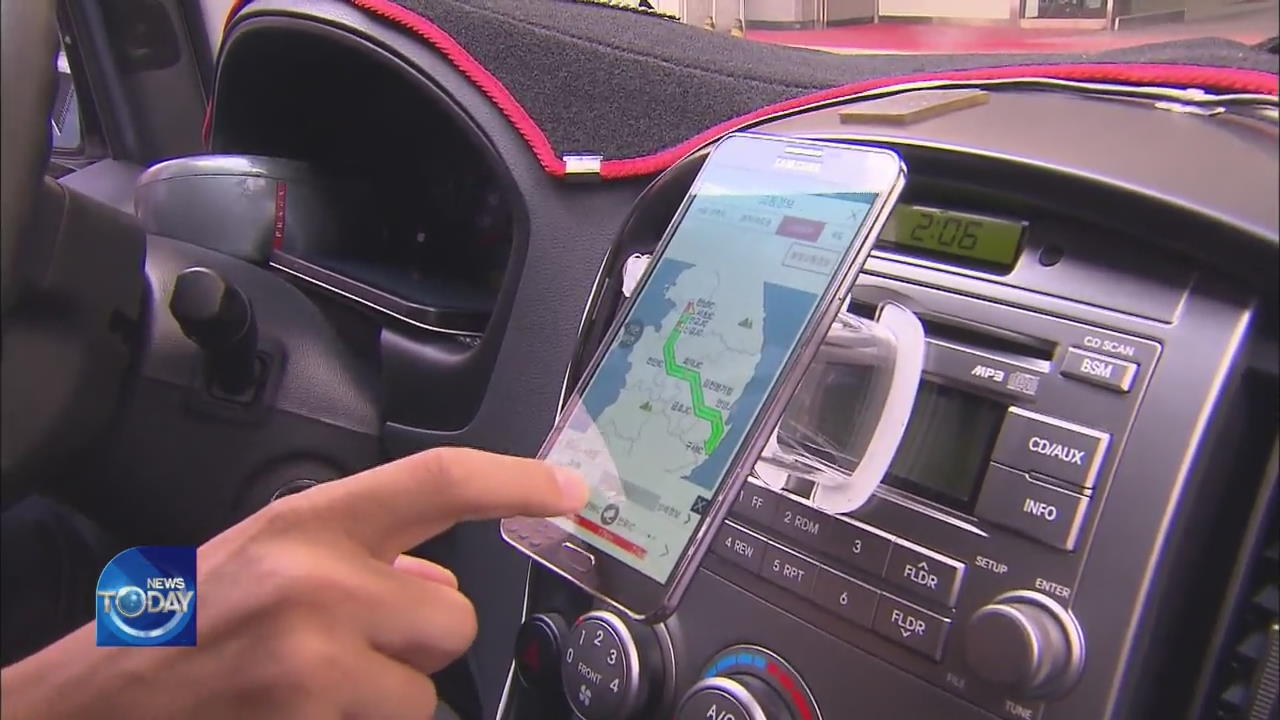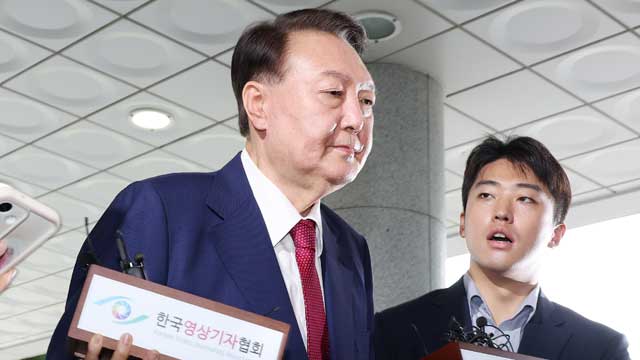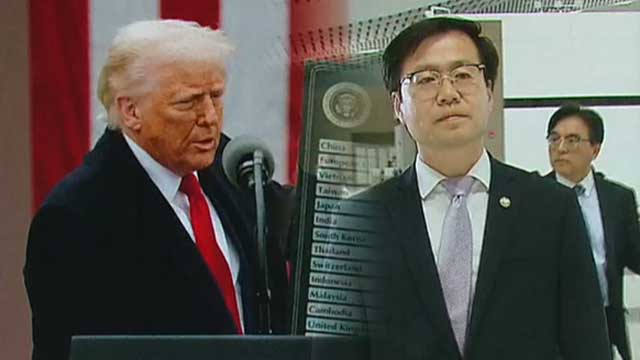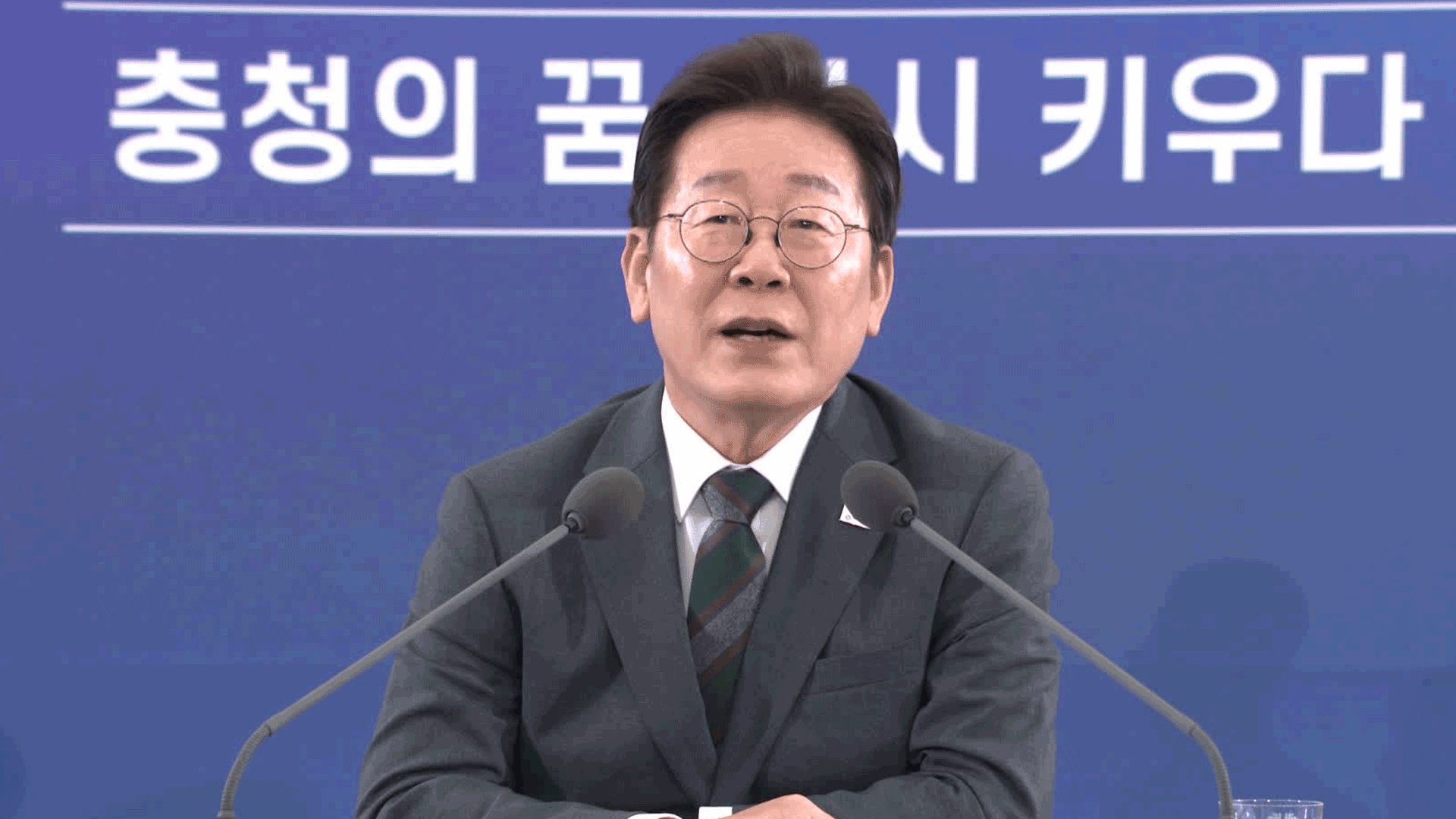AI TECHNOLOGY ON TRAFFIC CONDITIONS
입력 2019.07.10 (15:11)
수정 2019.07.10 (17:04)
읽어주기 기능은 크롬기반의
브라우저에서만 사용하실 수 있습니다.
[Anchor Lead]
The summer vacation season is one of the busiest times on Korean roads. An artificial intelligence technology that can predict road conditions has been developed recently. Let's take a look.
[Pkg]
Traffic congestion is a chronic problem in Korea during rush hour and on holidays. GPS apps can do little to find the fastest route when clumps of traffic begin to form on the road. Recently, a new technology that can accurately grasp the constantly changing traffic situation and notify drivers of the exact time of arrival has been developed. It can foresee the traffic situation 10 or 20 minutes in advance, and even pinpoint the driving speed with a margin error of just four kilometers an hour.
[Soundbite] KO SUNG-AN(PROFESSOR, ULSAN NATIONAL INST. OF SCIENCE AND TECHNOLOGY) : "This technology can predict situation on some 400 motorways in urban areas, and yield prediction results within one minute."
At the core of this technology is AI deep learning. It studies and analyzes months' worth of information on past traffic conditions, real-time traffic congestion and the busiest hours. The accuracy was raised by taking into account how one congested motorway can affect nearby roads. The new technology has been used by a traffic broadcaster in Ulsan since early this year to provide traffic information to local residents.
[Soundbite] (ULSAN TRAFFIC BROADCASTING) : "The current speed is 17.9km. In about 15 minutes, the driving speed will return to around 35km/hour, but it will still be low."
The new technology is expected to be used not only to alleviate traffic congestion, but also for GPS and improving the road network. It will be supplied to Gwangju, Busan, Daejeon and Incheon within this year.
The summer vacation season is one of the busiest times on Korean roads. An artificial intelligence technology that can predict road conditions has been developed recently. Let's take a look.
[Pkg]
Traffic congestion is a chronic problem in Korea during rush hour and on holidays. GPS apps can do little to find the fastest route when clumps of traffic begin to form on the road. Recently, a new technology that can accurately grasp the constantly changing traffic situation and notify drivers of the exact time of arrival has been developed. It can foresee the traffic situation 10 or 20 minutes in advance, and even pinpoint the driving speed with a margin error of just four kilometers an hour.
[Soundbite] KO SUNG-AN(PROFESSOR, ULSAN NATIONAL INST. OF SCIENCE AND TECHNOLOGY) : "This technology can predict situation on some 400 motorways in urban areas, and yield prediction results within one minute."
At the core of this technology is AI deep learning. It studies and analyzes months' worth of information on past traffic conditions, real-time traffic congestion and the busiest hours. The accuracy was raised by taking into account how one congested motorway can affect nearby roads. The new technology has been used by a traffic broadcaster in Ulsan since early this year to provide traffic information to local residents.
[Soundbite] (ULSAN TRAFFIC BROADCASTING) : "The current speed is 17.9km. In about 15 minutes, the driving speed will return to around 35km/hour, but it will still be low."
The new technology is expected to be used not only to alleviate traffic congestion, but also for GPS and improving the road network. It will be supplied to Gwangju, Busan, Daejeon and Incheon within this year.
■ 제보하기
▷ 카카오톡 : 'KBS제보' 검색, 채널 추가
▷ 전화 : 02-781-1234, 4444
▷ 이메일 : kbs1234@kbs.co.kr
▷ 유튜브, 네이버, 카카오에서도 KBS뉴스를 구독해주세요!
- AI TECHNOLOGY ON TRAFFIC CONDITIONS
-
- 입력 2019-07-10 15:16:22
- 수정2019-07-10 17:04:18

[Anchor Lead]
The summer vacation season is one of the busiest times on Korean roads. An artificial intelligence technology that can predict road conditions has been developed recently. Let's take a look.
[Pkg]
Traffic congestion is a chronic problem in Korea during rush hour and on holidays. GPS apps can do little to find the fastest route when clumps of traffic begin to form on the road. Recently, a new technology that can accurately grasp the constantly changing traffic situation and notify drivers of the exact time of arrival has been developed. It can foresee the traffic situation 10 or 20 minutes in advance, and even pinpoint the driving speed with a margin error of just four kilometers an hour.
[Soundbite] KO SUNG-AN(PROFESSOR, ULSAN NATIONAL INST. OF SCIENCE AND TECHNOLOGY) : "This technology can predict situation on some 400 motorways in urban areas, and yield prediction results within one minute."
At the core of this technology is AI deep learning. It studies and analyzes months' worth of information on past traffic conditions, real-time traffic congestion and the busiest hours. The accuracy was raised by taking into account how one congested motorway can affect nearby roads. The new technology has been used by a traffic broadcaster in Ulsan since early this year to provide traffic information to local residents.
[Soundbite] (ULSAN TRAFFIC BROADCASTING) : "The current speed is 17.9km. In about 15 minutes, the driving speed will return to around 35km/hour, but it will still be low."
The new technology is expected to be used not only to alleviate traffic congestion, but also for GPS and improving the road network. It will be supplied to Gwangju, Busan, Daejeon and Incheon within this year.
The summer vacation season is one of the busiest times on Korean roads. An artificial intelligence technology that can predict road conditions has been developed recently. Let's take a look.
[Pkg]
Traffic congestion is a chronic problem in Korea during rush hour and on holidays. GPS apps can do little to find the fastest route when clumps of traffic begin to form on the road. Recently, a new technology that can accurately grasp the constantly changing traffic situation and notify drivers of the exact time of arrival has been developed. It can foresee the traffic situation 10 or 20 minutes in advance, and even pinpoint the driving speed with a margin error of just four kilometers an hour.
[Soundbite] KO SUNG-AN(PROFESSOR, ULSAN NATIONAL INST. OF SCIENCE AND TECHNOLOGY) : "This technology can predict situation on some 400 motorways in urban areas, and yield prediction results within one minute."
At the core of this technology is AI deep learning. It studies and analyzes months' worth of information on past traffic conditions, real-time traffic congestion and the busiest hours. The accuracy was raised by taking into account how one congested motorway can affect nearby roads. The new technology has been used by a traffic broadcaster in Ulsan since early this year to provide traffic information to local residents.
[Soundbite] (ULSAN TRAFFIC BROADCASTING) : "The current speed is 17.9km. In about 15 minutes, the driving speed will return to around 35km/hour, but it will still be low."
The new technology is expected to be used not only to alleviate traffic congestion, but also for GPS and improving the road network. It will be supplied to Gwangju, Busan, Daejeon and Incheon within this year.
이 기사가 좋으셨다면
-
좋아요
0
-
응원해요
0
-
후속 원해요
0













![[속보] ‘31.8조 규모’ 이재명 정부 첫 추경 국무회의 의결](/data/layer/904/2025/07/20250705_AHdq3h.jpg)



이 기사에 대한 의견을 남겨주세요.